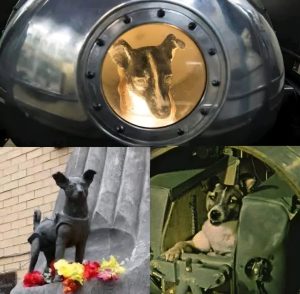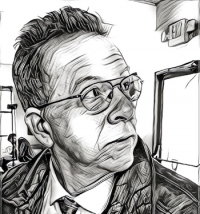 via H/T Facebook post:
via H/T Facebook post:“This year marks 67 years since Laika was launched into space. And, as every autumn, I feel it is my duty to remember this story. Not out of nostalgia or scientific curiosity — but out of a deep sense of guilt and reverence.
“Because Laika was not just an experiment. She was life. She was presence. She was innocence given over to the unknown. Her real name was Kudrjavka, which in Russian means “curly.” But she became known as Laika, “the barker,” or “Little Barker.” She was a mongrel, half Husky, half Terrier, captured on the cold streets of Moscow. She was only three years old and was chosen because she was calm, docile, and had survived the rigors of life on the streets — as if that made her more suitable to die alone in space. On November 3, 1957, at 2 a.m., Laika was launched aboard Sputnik 2. The satellite was equipped with food, water, a cooling system, and padded walls. But there was no plan to return. From the beginning, that trip was a death sentence disguised as scientific advancement.
“It is said that she survived for seven hours, but other sources say up to four days. Alone. In silence. Without understanding why she was taken. Just floating inside a metal capsule, while the Earth spun below her — ever further away.
“She circled the planet 2,570 times. Then, on April 14, 1958, the capsule reentered the atmosphere and disintegrated. Carried away by the heat. By gravity. By oblivion.
“Laika did not ask to be our heroine.
“She did not choose to represent science, the space race or human progress.
“She was just a stray dog, with eyes that sought affection — and a body that was used as a tool.
‘And that, brother, is why I return to this story every year. Because it forces us to remember that not all progress is innocent, and that many of our achievements were written with the pain of those who could not say “no”.
“Laika, we have not forgotten you. And as long as there is someone who tells your story truthfully, your memory will live on not as an experiment, but as a testimony of what we must never repeat again.”
